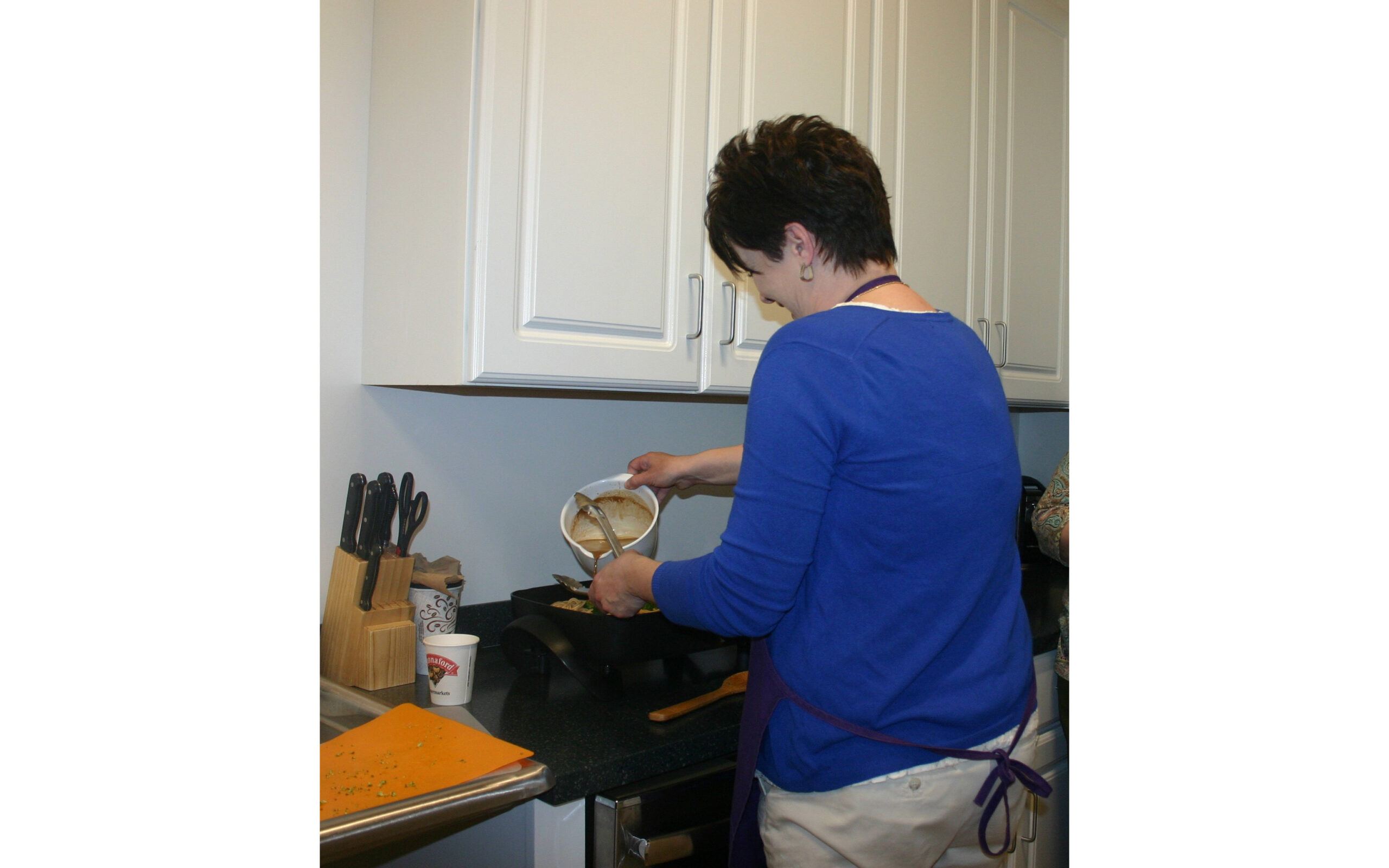
PRESQUE ISLE, Maine — Heather McGuire wants people in Aroostook County to know that cooking and eating healthy meals does not have to involve spending more money than their budget allows or giving up food that they can enjoy.
“I think there’s a misperception out there that eating healthy is more expensive, but when you find ways to mix in nutrition to your daily meals the results really work,” McGuire said, after teaching her final Cooking Matters class for the month on April 25 at the Sargent Family Community Center in Presque Isle.
McGuire has been a chef for Maine SNAP-Ed cooking classes for three years. Cooking Matters is part of Cary Medical Center’s Siruno Stroke Prevention Program, which also provides free blood pressure screenings, diabetes prevention and physical activity resources to Cary’s six Healthy You communities — Caribou, Presque Isle, Van Buren, Fort Fairfield, Washburn and Limestone.
Cooking Matters visits each of the six towns every month and in April stopped in Presque Isle to teach 16 students recipes that they could take home for their own cooking experiments.

Heather McGuire sautees spaghetti while teaching the final class of Cary Medical Center’s Cooking Matters class for the month of April at the Sargent Family Community Center in Presque Isle. Cooking Matters gives students free healthy recipes to cook at home and advice on how to read nutrition labels and shop for nutritious foods on a fixed budget.
(Staff Photo/Melissa Lizotte)
During Wednesday’s class, the students watched in the community center’s senior room kitchen as McGuire cooked Asian noodles with peanut butter sauce. The recipe called for thin spaghetti, soy sauce, Asian noodles, peanut butter sauce and extra vegetables such as broccoli, zucchini and summer squash.
“If I have extra vegetables, I like to grate them up and mix them in with the noodles,” McGuire told the group as she sauteed spaghetti in the kitchen.
She used all-natural peanut butter that contains only peanuts and salt, unlike conventional peanut butters that contain hydrogenated oils, sugar, salt and corn syrup.
“When it’s natural peanut butter, the oil will come to the top like this,” McGuire said, as she held up a jar. “People sometimes tell me at first that it doesn’t look as good, but you have to stir it to get the true peanut butter flavor.”
After adding crushed peanuts, red peppers and other vegetables on top, students helped themselves to the unique dish and a dessert of black bean brownies, cooked with whipped cream cheese and creamy peanut butter by Siruno Stroke Prevention Program Coordinator Nancy Holmquist. The meal quickly became a popular one with many students.
“This is my favorite meal we’ve had in this class,” said Ann Stephenson of Presque Isle, who enrolled in Cooking Matters with her husband Todd Stephenson. “We wanted to try healthier meals that we could cook at home. I’ve enjoyed trying foods like apple crisp made with whole wheat flour and learning how to use 50 percent low-fat cheese when cooking.”
Valarie Deschesne of Presque Isle has now taken the Cooking Matters class three times and has benefited from learning how to better read nutrition fact labels on store-bought products and how to prepare home-cooked meals in healthier ways on a fixed budget.
“I’ve learned that if I strain and rinse corn and peas it helps bring the sodium levels down,” Deschesne said. “I’m buying more fruits now instead of just cookies and cakes and I’ve been trying to take better care of myself and eat better.”
All Cooking Matters students receive free food and cooking materials to take home after each class and a copy of the Share Our Strengths Cooking Matters cookbook that features all the recipes that they have learned. Good Shepherd Food Bank provides the cookbooks and curriculum while Hannaford pays for and provides all food.
Holmquist stated the Cooking Matters class has become the Siruno Stroke Prevention Program’s most popular initiative and is one of many that encourages individuals to prevent major health problems such as diabetes, stroke, cardiovascular problems and hypertension. When compared to the national stroke mortality rate of 36.2 percent, for instance, Aroostook County’s mortality rate for the same health issue is 39.9 percent.
“With this class and other programs we want to give people ways that they can make small changes in their life that can make them healthier,” Holmquist said.







